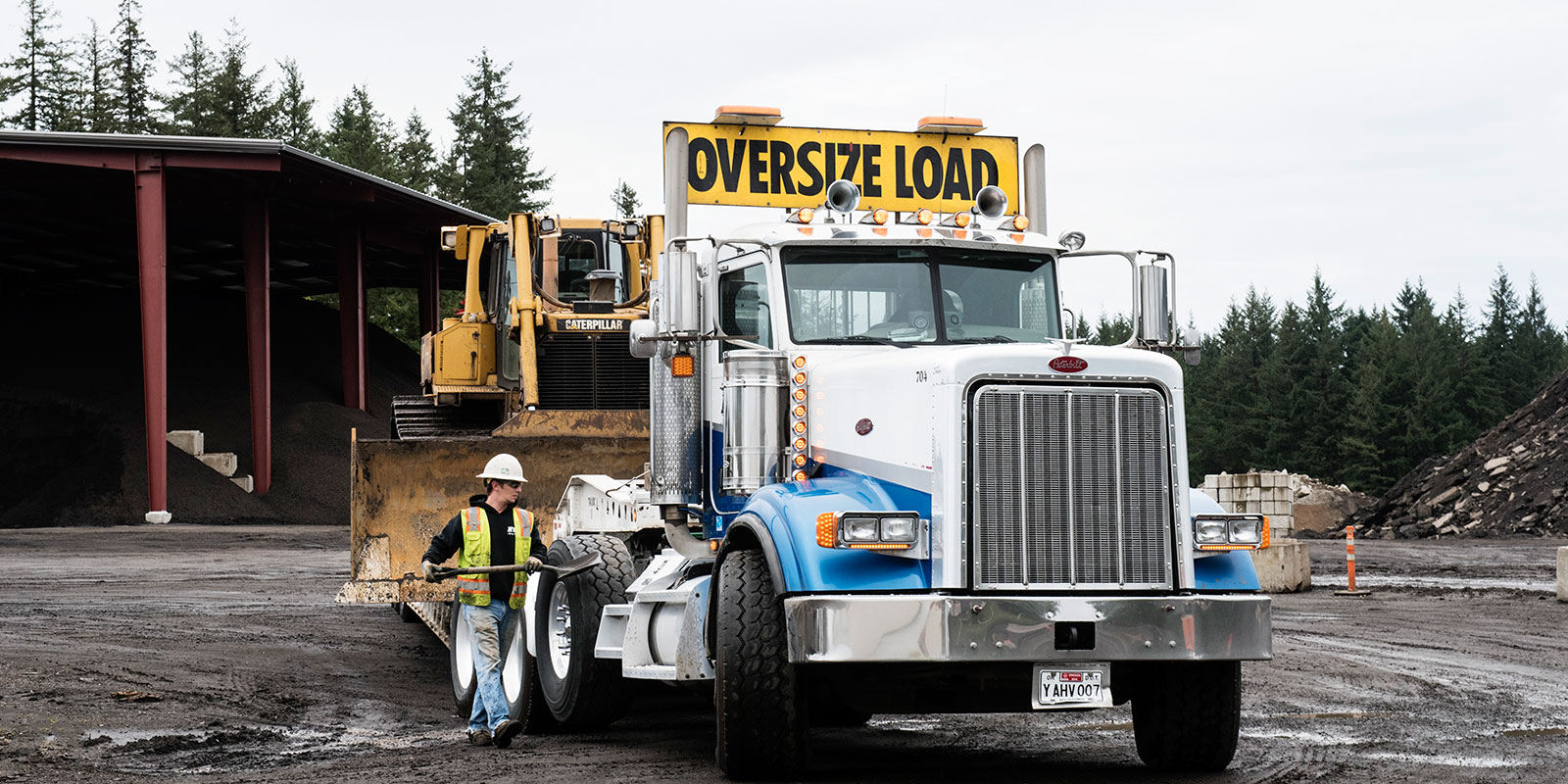
A DOT inspection can cause stress for even the calmest and coolest of truckers.
First of all, there shouldn't be a reason to fear DOT inspections, if you're doing your job as a truck driver and following the rules which govern the trucking industry.
DOT officers are like any other professional group out there. There's good ones and bad ones. Their mandate is safety and compliance. In most cases, they're just doing their job.
Some of these DOT inspectors see their job as helping to make the industry safer, while others see it as a chance to wield power.
In their defense, some of this attitude is mandated by the state they work for. During a vehicle inspection, some officers will point out minor violations and ask the driver to correct the problem, without penalty or incident. They recognize that the infraction is minor. They concentrate on the major safety issues.
However, other DOT inspection officers set out to write as many tickets as they are able. If you're an experienced driver, I'll bet you've met at least one or two tough inspectors.
THE TOUGH INSPECTORS
It has been revealed by the media, rather than the DOT themselves, that some states and provinces operate truck inspections on a quota basis. This means the inspectors are mandated by their various state or provincial governments, to issue a certain percentage of violation tickets, according to the number of trucks they inspect.
In these regions, it's quite possible to get a ticket for an infraction which ordinarily would have been forgiven. In fact, it's possible to receive a fine even if nothing is in violation.
It's then up to the truck driver to take the issue to court and fight it. DOT inspectors know as a rule, most truckers don't have the time or financial resources to fight an illegitimate ticket.
It is also important to note that while CSA is a North American standardized way of doing commercial inspection, those inspections can be modified by the various states and provinces.
Some states and provinces don't grant officers any leniency at all, when it comes to writing tickets. In some states, it's pretty cut and dried.
California well known for it's stiff rules, regs, and enforcing DOT hours of service rules. However, we have had a few occasions in the past, where our drivers were clearly in the wrong. But the DOT officers cut them some slack when they co-operated and handled the situation well.
Here are some tips for truckers on how to best handle a Department of Transportation inspection. The last thing a driver wants to do is agitate an inspector.
ADVICE FOR HANDLING A DOT INSPECTION
- Be pleasant. Be courteous. Also cross your fingers.
- Listen to what the inspector is saying. Some inspectors are mechanically inclined and are really a wealth of knowledge. Listen to what they say.
- Ask intelligent questions, if any.
- Stay quiet as tough as it may be. Accept what they say, and any violations they slap you with. Remember these guys are paid to do a job, not keep the trucker happy. Truck drivers don't like to be told how to do their jobs. Don't try to tell a DOT inspection officer how to do his.
- Don't try to impress the officer with your worldly knowledge. Shut up. If you think they're wrong, don't argue with the officer. Take the issue to court. In a confrontation with an officer, there's one sure thing you can count on. YOU WILL NOT WIN. In fact, you'll probably find yourself watching the fines grow and accumulate, should you decide to challenge them.
- Be familiar with the various documentation in your Driver's Documents Binder. When the inspector asks to see your cab card for instance, you should be able to identify and locate that document in your permit binder (you'd be surprised how many drivers don't know what's in their permit binders!) Likewise with your proof of insurance and IFTA. Part of your daily precheck is ensuring that all of your documentation is up to date. Be sure that it is and know what it looks like. The inspector will be less likely to give you grief if he sees you know what you're doing, rather than bumbling around through your binder. Many drivers are not properly trained and prepared in this area. Don't be one of them.
- Know how to pull up log book information required if running on an electronic log system, when the inspector asks to see your records. Many states now require the driver to also carry a paper manual instruction book for the electronic logging device they are running. Be sure you are carrying the manual in the truck and know where it is.
- Be aware and prepared. If for example you are hauling hazmat, know the required documentation. It's better to be prepared when rolling into a scale. If the officer sees you parked on the off ramp getting your ducks in a row, you can bet you'll be pulled around back. The good news is, with electronic logs becoming more widespread, the DOT seems to scrutinize the companies with these systems less often. Sometimes they don't inspect the vehicle or bother to look at the electronic logs. They simply wave the driver on through the inspection station. But don't count on it.
At the end of the day, it is what is, as they say. Keep in mind being polite and professional at a DOT inspection, will go a long way.
Hopefully the DOT mandate will continue to enforce the laws for safety's sake and not turn into the money grab that's it's often rumored to be.
Be calm. Be cool. Be professional. Handle that inspection like a boss.
Source: SMART Trucking